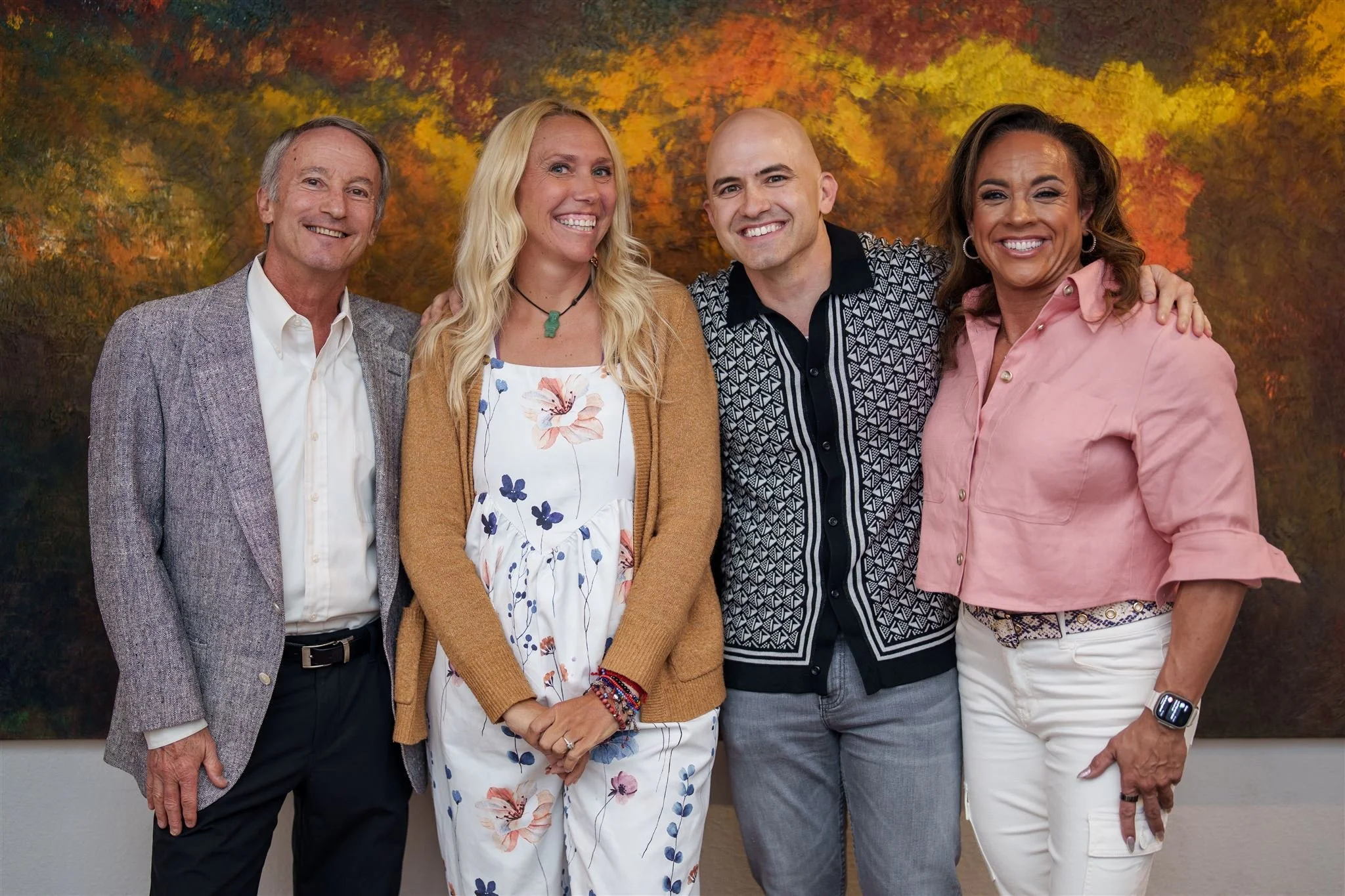Want to craft a talk that gets noticed? Do these 3 things...
As the curator and head speaker coach for TEDxManitouSprings, I’m deep in the middle of preparing three speakers for our next event. As I write this, we actually just held our speaker Mastermind last night.
When we held our kickoff call a few weeks ago, I shared with our newest batch of speakers some of the successes many of our TEDxManitouSprings alums have experienced after their time on the red dot.
Five of our speakers have surpassed 1 million views on YouTube
Three of our speakers have had their talks promoted by the big TED organization
The average TEDx Talk gets 450 views on YouTube...our speakers average 130,000+
Some have used their TEDx experience on our stage to launch their professional speaking careers
Others have written books based on their TEDx Talk content (hey, that's me!)
Each of the three speakers (Ken, Leah, and Lisa) shared that they held similar goals — to create and deliver a talk that gets noticed.
I’ve coached a lot of people through the creation process of their talks, and there are some crucial elements that help a talk stand out — whether it is on the TEDx dot, the breakout room, or the keynote stage.
To craft a talk that not only is meaningful in the initial delivery but also one that resonates long after you step off the stage, there are three things you must do.
1. Tell interesting, succinct, and relevant stories that serve as entry points to your big idea
Nearly every speaker coach or guru out there will tell you to “be a storyteller.”
But in the absence of clear guidance on what this looks like and sounds like — and what stories are the most relevant and unique to use in your talk — many speakers take the idea of storytelling and turn it into:
an open invitation to tell their life story, treating their time on stage like a diary entry
an information avalanche filled with so many details and specifics that they muddy the point and premise of the talk
a trauma-dump, where the talk becomes the speaker’s on-stage therapy session
In these instances, audiences are often left asking at the end, “What's the point?” or “What do you want me to do with all that?”
The speakers who epitomize being a storyteller on stage share unique, first-hand anecdotes and stories that act as way-finding pillars or guideposts for their idea or topic.
Their stories serve as carefully crafted springboards to a bigger idea they wish to share.
And they do it in such a way that they don’t divulge everything that they could. Instead, they are ruthless in choosing the details they choose to share and not share, believing that a story well-told requires some intrigue and perhaps some questions left unanswered.
2. Approach your talk as an exploration of an idea rather than trying to be the expert
Delivering a meaningful talk often relies on your intentions.
Do you want to stand on a stage and prove how smart you are?
Or do you want to create change and impact with your words and perspective?
Admittedly, this is a bit of a false duality of choice, but I’m using it anyway to make my point.
The speakers whose talks resonate the most spend less time trying to convince the audience of how great they are because of what they know and more time sharing why they think it matters.
It’s like a hiker who carves a new trail and finds an awe-inspiring waterfall in an untouched area of wilderness. As the hiker returns to the trailhead, they share with the other hikers what they've found, teaching others how to experience this discovery and why they'd even want to in the first place.
“You’ll know you're getting close to the waterfall when you feel the air start to cool down and you notice the plants are a little greener and fuller.”
“If you make your way around the north side of the waterfall, around the boulder shaped like an elephant, you’ll get the best pictures.”
One of my favorite examples of this is Scott Harrison’s keynote at Hubspot’s INBOUND conference in 2018. I was blessed to be in the audience that day, and I marveled at how Scott, the Founder and CEO of Charity: Water, took us on trip around the world to experience the water crisis through the stories he told.
He didn’t try to convince us of the importance of Charity: Water’s work by touting how smart he was or how much he knew about building a non-profit.
He set aside any need to be the expert, and instead, taught us to see with new perspective a problem he has dedicated his life to solving.
I signed up that day to be a Charity: Water supporter, and I’ve been a donor ever since. That’s lasting impact.
3. Make sure you are able to clearly and concisely articulate your idea
If you cannot tell me in a sentence or two what your talk is about and why it matters, you have more work to do.
The best speakers I’ve coached left no room for ambiguity — you knew exactly what their talk was about and by the end, the call to action was clear.
Too many speakers deliver talks that are simplified mash-ups of motivational Instagram memes shared in speech form.
They haven’t done the work to get beneath clichés, jargon, and surface-level insights, and so they lack clear direction, they fail to land their most important points, and their talks become forgettable.
Here are three TEDx speakers I’ve coached whose talks have gone on to achieve global reach, helped by the fact that their big idea was unmistakeable.
Network Doesn’t Have To Feel Gross — Daniel Hallak
How To Binge A College Semester In One Week — Steven Hayward
3 Ways To Help Resettled Refugees Acclimate Faster — Nhi Aronheim
The best way to crystalize your points? Ask yourself some tough questions, and be willing to do some deep introspection work as you sort through your answers.
This is why my speaking coaching always begins with a deep-dive interview. When you are asked questions about something important to you by someone who has never heard your idea before, you give language to the thoughts inside your head in ways you never have before.
Out of this process comes clarity and conciseness — for you and for your audience.
As always... keep asking questions!


